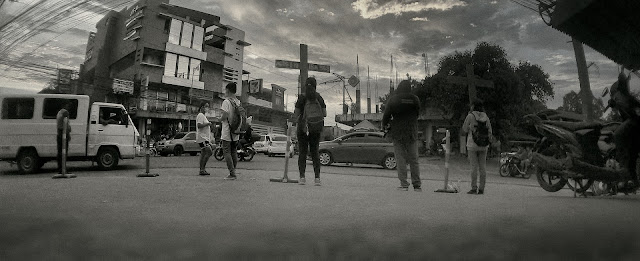Neglect And Omissions
Those great preachers, whose names we remember, were men who counted nothing their own. They were driven out from their benefices, because they could not conform to the Established Church, and they gave up all they had willingly to the Lord. They were hunted from place to place ... they wandered here and there to preach the gospel to a few poor sheep, being fully given up to their Lord. Those were foul times; but they promised they would walk the road fair or foul, and they did walk it knee-deep in mud; and they would have walked it if it had been knee-deep in blood too.
~ Charles Spurgeon
How many of the dear children of God are crying for bread ? (for the powerful preaching of the word amongst them) and there is no bread to be given them, nor the pleasant voice of their faithful ministers to be heard amongst them ; and they are left to lament over their silenced ministers, as King Joash wept over the dying prophet, 2 Kings 13. 14. "O my father, my father, the chariot of Israel, and the horsemen thereof. Will not God visit for these ? Will he not be avenged on such a nation as this ? Yes, yes, he will ; Israel's woe may be England's warning, Amos 4. " Thus will I do unto thee; and because I will do thus unto thee, therefore prepare thy heart to meet thy God, O England !" But this is a digression.
That which I am to speak to is this, you are to bear the cross contentedly, because whatever you do endure, it is nothing to what you deserve, or to what the damned in hell endure.
A farewell sermon, preached at Great Ayton in the county of York, by George Evanke, Chaplain to Sir George Norwood, Bart. At Cleaveland, in Yorkshire.
From A Collection of the most powerful sermons of the Great Ejection. 1662.
The Act of Uniformity prescribed that any minister who refused to conform to the Book of Common Prayer by St Bartholomew's Day (24 August) 1662 should be ejected from the Church of England. This date became known as 'Black Bartholomew's Day' among Dissenters, a reference to the fact that it occurred on the same day as the St Bartholomew's Day massacre of 1572.
Oliver Heywood estimated the number of ministers ejected at 2,500. This group included Richard Baxter, Edmund Calamy the Elder, Simeon Ashe, Thomas Case, John Flavel, William Jenkyn, Joseph Caryl, Thomas Brooks, Thomas Manton, William Sclater, Thomas Doolittle and Thomas Watson. Biographical details of ejected ministers and their fates were later collected by the historian Edmund Calamy, grandson of the elder Calamy.
Although there had already been ministers outside the established church, the Great Ejection created an abiding concept of non-conformity. Strict religious tests of the Clarendon Code and other Penal Laws left a substantial section of English society excluded from public affairs, and also university degrees, for a century and a half. Culturally, in England and Wales, nonconformism endured longer than that.




Comments
Post a Comment